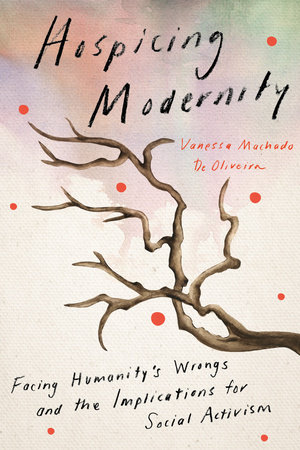What do you think?
Rate this book


272 pages, Paperback
Published September 21, 2021
We first need to notice the harms we are causing, and become dissatisfied with the things we enjoy that cause those harms (e.g., comfort, security, certainty). Only then might we begin to loosen the relational and affective restrictions modernity has imposed upon our being; and learn to see, sense, and relate otherwise. (121-2)More:
We need, in short, “mass rehabilitation.” (7)
Before anything different can happen, before people can sense, hear, relate, and imagine differently, there must be a clearing, a decluttering, an initiation into the unknowable; and a letting go of the desires for certainty, authority, hierarchy, and of insatiable consumption as a mode of relating to everything. We will need a genuine severance that will shatter all projections, anticipations, hopes, and expectations in order to find something we lost about ourselves, about time/space, about the depth of shit we are in, about the medicines/poisons we carry. (235)
While contemporary mastery education encourages learners to voice their opinions, aspirations, likes, and dislikes; depth education encourages learners to step back to observe with skepticism one’s own personal narratives, desires, and identifications and disidentifications. While mastery education instigates the performance of learners’ identities and self-expression, depth education assumes that we are unreliable narrators of our own experiences and invites an inquiry into the ways we could be stuck, what we resist or try to run away from, and how different modes of knowing and being mobilize different relations, possibilities, and transformations in the world…In other words, the book's model for education is pretty much what the book sets out to do:
Depth education, as defined here, is an orientation towards activating capacities and dispositions that can enable us to hold space for difficult and painful things, and to sense, relate, and imagine otherwise as we face the end of modernity or the world as we know it. (44)This critique of progressive education runs throughout the book:
Lifelong education based on uninterrupted positivity, unaccountable self-expression, constant praise, and validation seemed to be doing in the opposite direction [of empowerment]. Rather than empowering, it was making people more fragile by affirming immature desires for self-infantilization grounded in an insatiable need for coddling and affirmation. This kind of education leaves young people empty of intrinsic worth, vulnerable to the toxicity of their environment, and unequipped to face difficulties and painful challenges. (210)Here the book sounds almost like the grumpy "kids these days and how they all get a trophy" line... but in the purpose of toughening students up for the actual end of the world.